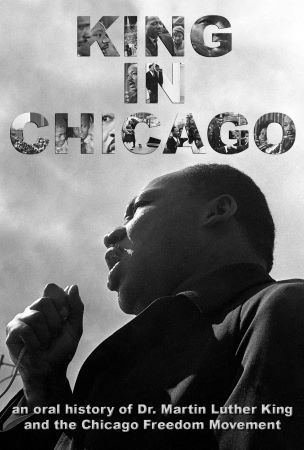
King in Chicago 2009
Distributed by Good Docs
Produced by Seth McClellan
Directed by Seth McClellan
Streaming, 56 mins
College - General Adult
African American History; Civil Rights; Race Relations
Date Entered: 12/15/2023
Reviewed by Cori Biddle, Student Engagement and Outreach Librarian, Robert E Eiche Library, Penn State AltoonaThe documentary King in Chicago covers Dr. Martin Luther King Jr.’s work in 1966 to address the racism and segregation prevalent in the city of Chicago. After prior successes in the South, there were initial questions as to whether his nonviolent methods would be successful in the cities of the urban north. Through interviews, the documentary presents how King and other activists tackled the issue of housing equality, and the deplorable conditions African Americans faced in the slums of Chicago. It highlights the unique conditions they found there: with the highly segregated ethnic neighborhoods and the political environment of Richard J. Daly. Though King left Chicago in 1967, and the Fair Housing Act was signed into law in 1968, those interviewed for the documentary had mixed responses to the results of King’s time in Chicago. And all shared their reflections on what happened to the course of Civil Rights and other movements after his assassination.
With no narration, the documentary is told by editing together a variety of interviews with Sothern Christian Leadership Conference staff, Chicago Freedom Movement members, academics, and other activists from Chicago. While it allows each interviewee to tell their experience in their own words, there is very little context for the audience as to the history of these groups, or even these individuals. This documentary will resonate best with those who already have some background knowledge of this era, or in a classroom setting where the context can be presented.
Overall, this film is recommended for those courses that want to add more context to the Civil Rights Movement and other activism in the 1960s. However, it may work best as part of a larger collection of interviews, personal reflections, and background texts.
Published and licensed under the Creative Commons Attribution 4.0 license. Anyone can use these reviews, so long as they comply with the terms of the license.